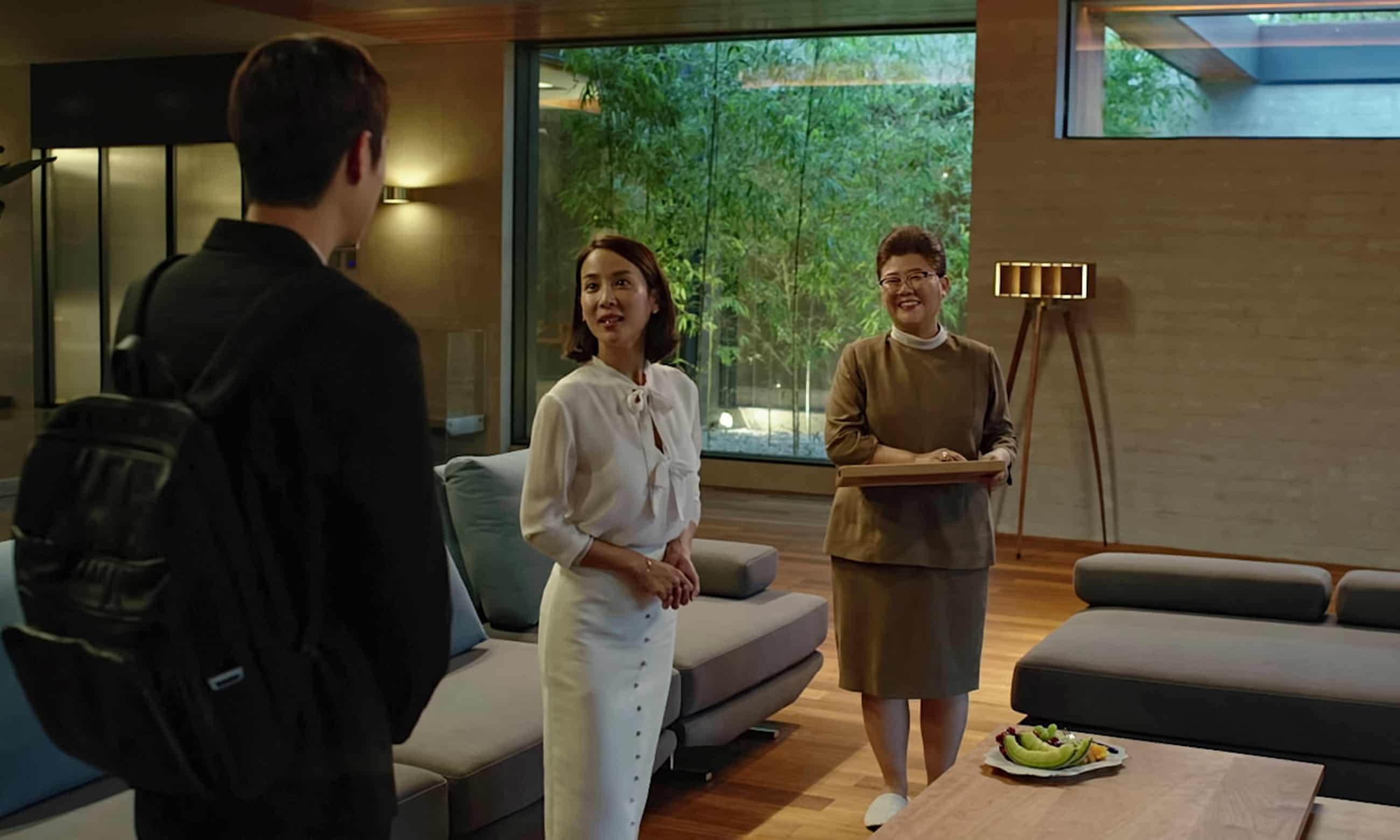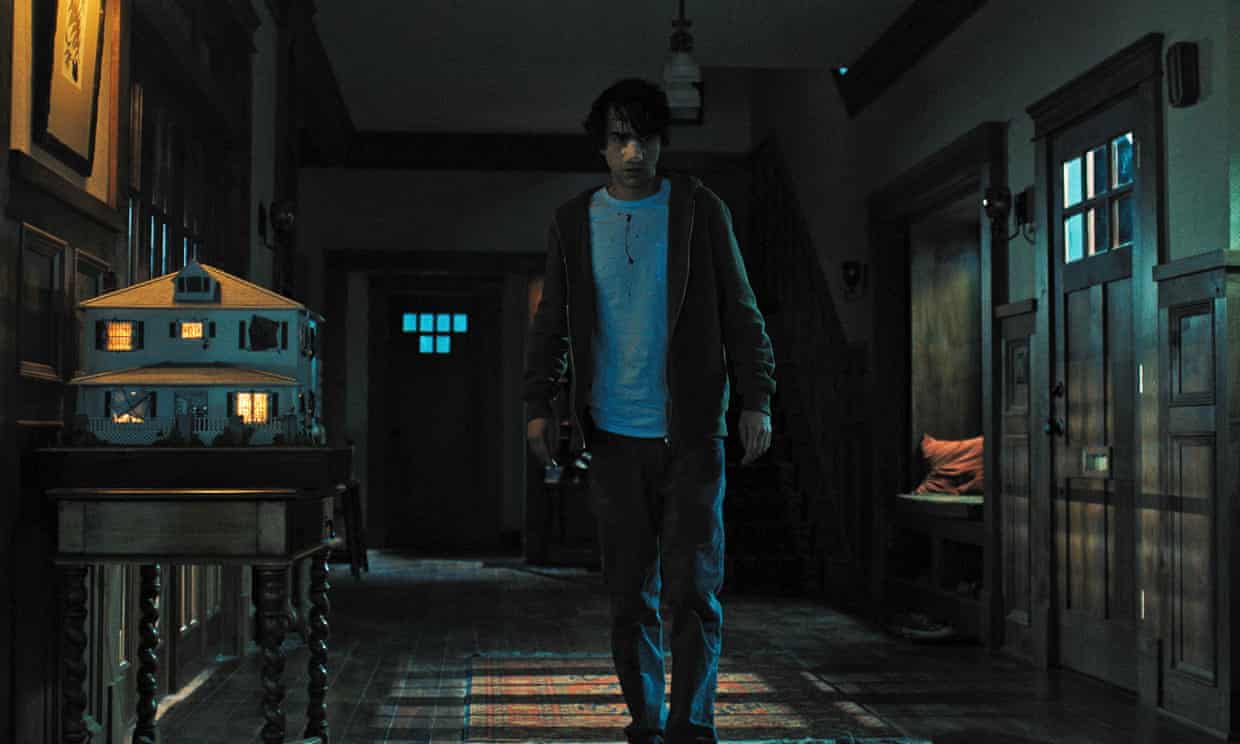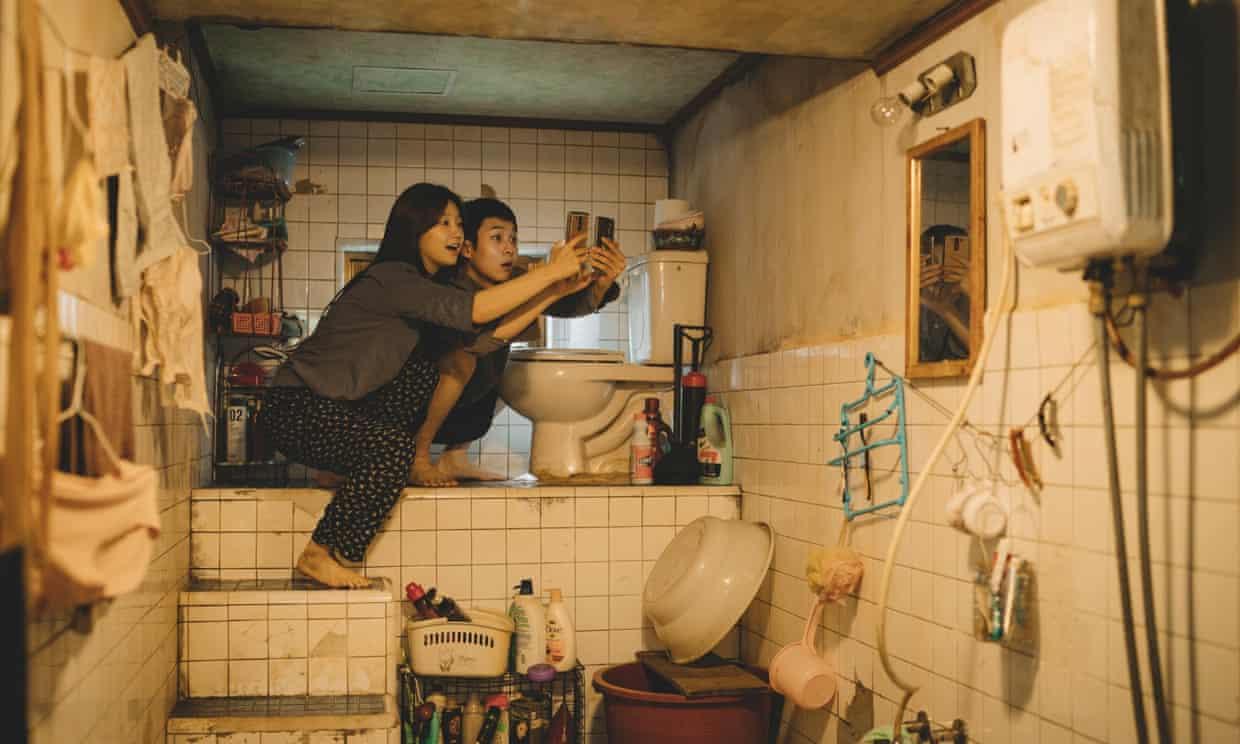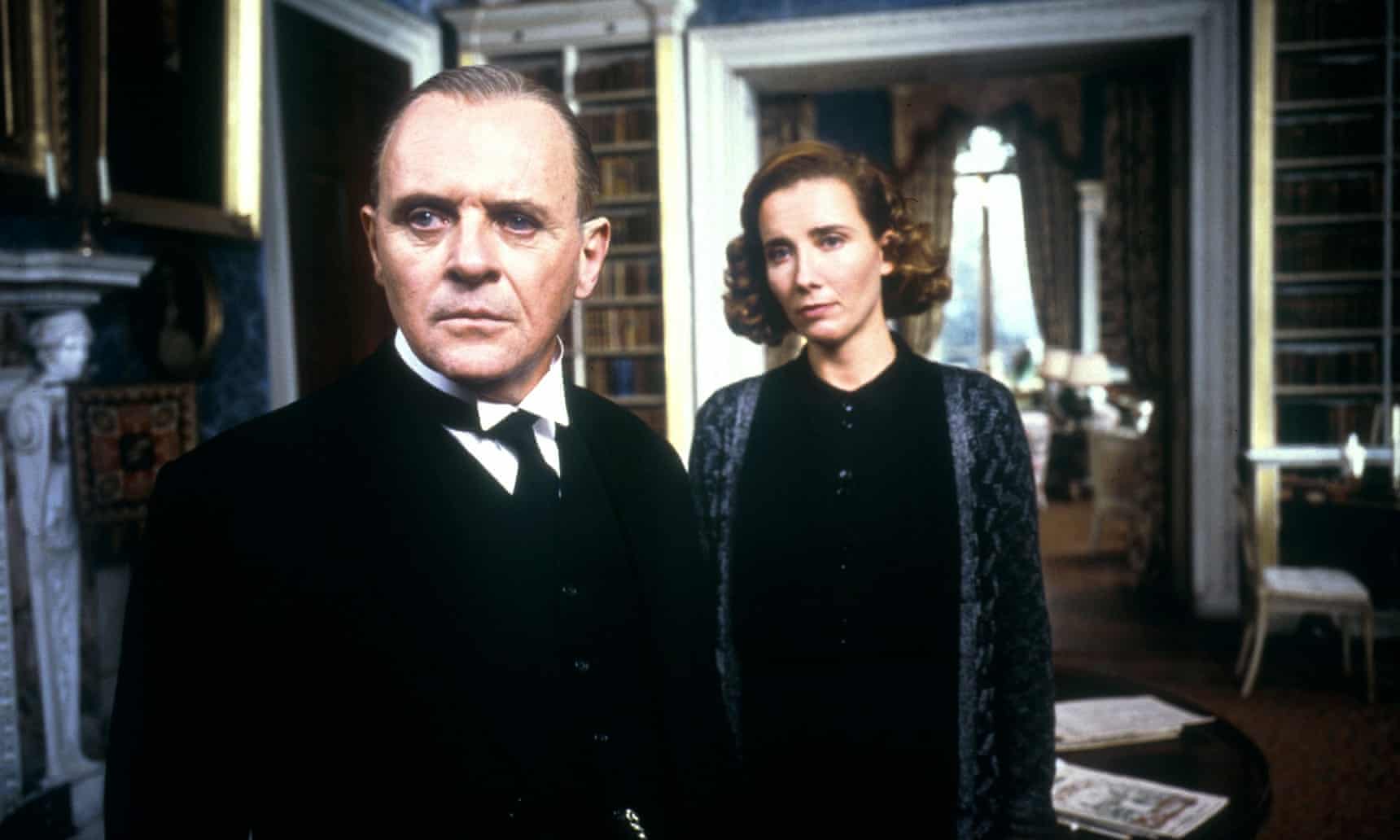
Parasite
The real star of Bong Joon-ho’s Oscar-winner Parasite? The house
Four carefully crafted sets give the appearance of a luxurious labyrinth of burnished wood and crystal-clear glass – a perfect location for menace and suburban depravity
by Alex HessPretty much every actor in Parasite puts in a note-perfect performance, but as the film unfolds there’s no doubting the star of the show. The house where the bulk of the action takes place – a gloriously opulent modernist building, shot to ensure no gleaming surface or painstaking furniture arrangement goes unnoticed – is truly a thing of wonder. Bong Joon-ho’s big-screen creations to date include amphibious man-eating mutants and genetically modified superpigs, but this pad might just top the lot.
Within the film, this is the home of the well-to-do Park family and brainchild of a hotshot celebrity architect; in real life, it’s the result of four carefully crafted sets and lots of clever editing. The upshot is the appearance of a luxurious labyrinth of burnished wood and crystal-clear glass, all towering tastefully over the best-kept lawn this side of Wisteria Lane. Bong’s film imparts many vital lessons, and chief among them is that there are few things in life more pleasing than a perfectly positioned coffee table.
But like his flesh-and-blood monsters, this invention contains its fair share of menace too. As our downtrodden heroes find themselves drawn to the house, first fawning over it and then getting to work covertly moving in, Parasite sets itself within a small but distinct band of movies in which the setting is paramount and a place of ostensible domestic bliss becomes twisted into something else.

These films can belong to various genres, though the most common is horror. The Bates Motel, Cuesta Verde and Hill House have all entered movie lore for the scares hidden within, part of a grand tradition that has passed from Repulsion to Hereditary via Amityville. While Parasite isn’t exactly a horror film, what it does share with these movies – and their spiritual sibling, the home-invasion thriller – is a slow-burn first act that doubles as a private tour of the grounds, showing us all the quirks and intricacies that will inevitably come into play later. Not so much Chekhov’s gun as Chekhov’s laundry chute, Chekhov’s rickety treehouse or Chekhov’s remotely operated patio door.
A scream is never far from a laugh, and while the likes of Panic Room, Don’t Breathe and Hush mine their locations for the former, Home Alone outstrips them all by employing the same premise for slapstick. Despite its marketing as an adults-only nailbiter, Parasite probably has as much in common with the hide-and-seek mischief of Kevin McCallister, not least because the film only really catches fire when the household’s underlings manage to rid the place of its ruling class.

That C-word, though, was never something Home Alone paid much thought to, whereas class is Parasite’s entire reason for being, peering out from the film’s every nook and cranny. The angular perfection of the Parks’ house is more than just a pretty space – it’s a reminder that this family occupy a different world to that of the Kims, whose grubby basement flat is an oppressive mess of chipped tiling and loose-hanging wires. In this regard, Parasite plants its foot firmly on the neatly manicured turf of a third type of house-movie: the one in which a plush bourgeois home conceals bottomless depths of misery.
The idea that picket-fenced paradise is actually playing host to the slow death of the American dream has long given rise to earnest Hollywood fare, from Ordinary People to American Beauty to Revolutionary Road (the clue’s often in the artfully ironic title). Parasite, which prefers acid satire to heartfelt drama, has its truer kindred spirits in The Stepford Wives or Blue Velvet. These films’ hedgerowed havens might have been intended as quintessential Americana, but Bong shows that the depravity of suburban affluence is hardly exclusive to the land of the free.

Oddly for a film set in present-day South Korea, Parasite also has plenty in common with a very specific strain of British period drama, where a bitter and unspoken class divide plays out within a grand stately home. Gosford Park, Downton Abbey and The Remains of the Day are all touchstones here, using a lavish domestic backdrop to drive home the poisonous master-minion relationships therein. And if you’re especially clever, your house can itself serve as a handy visual metaphor for the very themes it’s picking at: Bong has cited his admiration for Joseph Losey’s The Servant, a po-faced study of repressed envy in which characters are kept apart by a staircase.
The genius of Parasite is that it takes that idea to a whole new level, but also that it manages to drop in on so many genres along the way: broad comedy, queasy slasher, class-war psychodrama. Not that it takes up residence in any – although that house will stay lodged in your brain for some time.